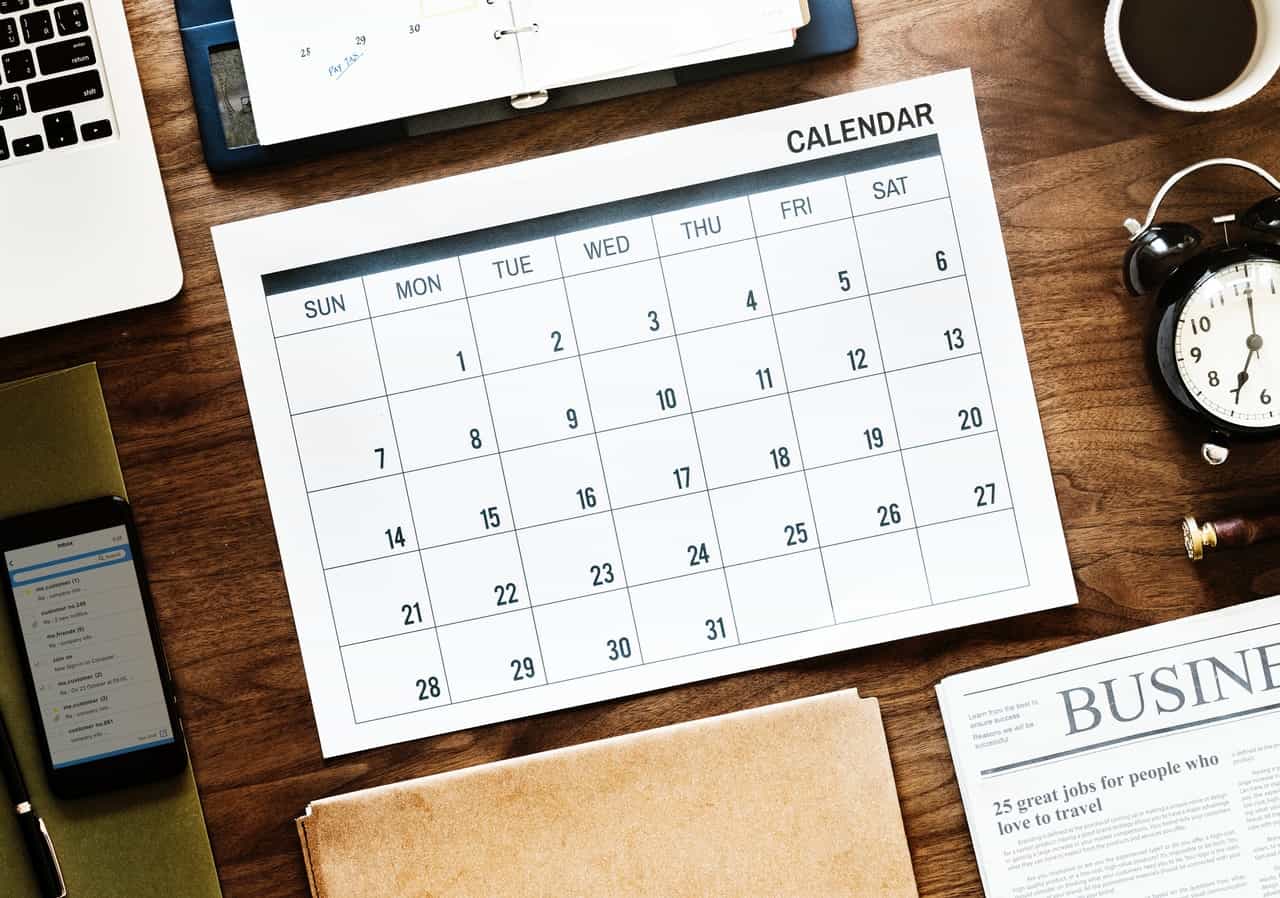How often do you come across a meal plan with a calorie limit in the title? Seeing something like a 1,700 Calorie Meal Plan sounds ideal, right? You’re eating a good amount of food, you’re not depriving yourself from eating, and it promised you were going to lose weight. So, you give it a try, and it lasts a week or so. Then you revert back to your old eating habits.
Then you come across a 1,600 calorie plan; then 1,900, then 1,500. There are tons and tons of meal plans out in the universe with calorie limits that claim to help you lose weight. But how do you determine which is best for you? How do you know which combination of calories is right for your body type? They all say they will help you lose weight and some will even give you a time frame when you’ll drop the pounds. So, how do you choose?
Simple, you don’t. No matter what calorie limit meal plan you come across, that’s all it is, a meal plan. There is no research, no support, no guidance on changing your habits to not only help you lose weight but learn how to keep it off in the long run. Anyone can follow a list of what they can and cannot eat. It takes digging into the why of your choices, as well as finding what foods, calories, eating schedules, exercise routines, and sleep patterns work best for your individual body and life. Following a meal plan may help you shed some poundage in the meantime, but what happens when the meal plan is “over”? What happens when you go back to your regular eating habits? What happens when you don’t follow your calorie intake precisely each day? The never ending diet cycle controls another victim.
The thing about weight loss, it is never a one-size-fits-all scenario. Which is why diets don’t work. Weight loss is such an individualized process, people tend to flake when their progress is not matching another’s. Weight loss is not just about eating the correct foods and finding an aggressive workout schedule. It is about disecting the reasoning behind our choices, finding the eating patterns that work for you, and finding more joy in your health decisions to keep up with motivation and momentum.
The 1700 Calorie Meal Plan Works – But Not for Everyone
And that is how the Noom app works. The program is designed to help each individual find what works best for them. It is not about restructuring your life around Noom, but finding ways to fit Noom into your already chaotic life. The way you construct your own individual process within Noom is with the guidance and support of your coach. Their role is to help you analyze not only your calories each day, but also your food choices and patterns. But the coach conversations go beyond calories; your coach works with you to develop goals each week to break down your overall goal of weight loss, into more realistic milestones. The goal setting process helps ease the anxiety and stress around thinking about the ending goal, losing a certain amount of weight. Thinking about that long term goal is what can derail progress and motivation. Breaking down the larger goal into smaller ones, makes it seem more achievable.
Support, Guidance, and Education
Setting goals with your coach does not have to revolve around just food. With the help of our curriculum, app users are able to dive into topics outside of nutrition, that affect weight. Topics such as sleep, hydration, stress and physical activity all affect weight in one way or another. You ever find yourself doing everything right with your eating and the scale just won’t budge? It may not be your eating habits! The research behind the curriculum gives you insight on this areas and how they can affect your weight. The daily content guides you and your coach to develop goals each week. This curriculum structure is what most diet plans are missing, education. Going beyond following a diet plan or counting calories and really getting to know your body’s needs will likely lead to long term weight loss.
Quantity vs Quality
As you log your calories in the app, you are not only analyzing the quantities of your food, but also the quality. The food logging of the app goes beyond a basic calorie counter. It breaks down each food into three categories, based on calorie density (calories/gram). This color coded system allows you to learn what eating patterns are best for your body. You may find you start the day really strong with lower density foods, but end the day with higher ones. We’ve all been there! That’s why seeing the breakdown of what the quality of your choices look like beyond calories is crucial for weight loss and for getting optimal nutrition. The key is to have balance and variety in all of your meals and snacks. Learning about the calorie density of your food gives you the opportunity to make long lasting habits.
With Noom, You Are Never Alone
Along with the educational side of Noom comes more support, engagement and fun. How many times have you tried diving into a diet plan alone? Doesn’t last very long, does it? Motivation is one of the hardest concepts to keep up with when it comes to managing weight. That’s why Noom believes having a group of individuals who are also charging through the journey like you to lean on can bring you that much closer to your goal. Having a group setting within the app is where daily interaction happens. While each group has a group coach to facilitate conversations, post challenges and provide educational resources, the group is a place for you! It is a safe space to talk about your victories, share your challenges, motivate one another and make the weight loss journey more fun and rewarding. The group dynamic can bring out a side of motivation you never knew you had. Seeing a group of strangers become a “Noomily” and support each other during stressful times is very unique. It may seem odd and even intimidating to share such an intimate process with a group of strangers, but you’d be shocked at the encouragement and support your group can provide you. What encouragement does a calorie stricken diet plan give you?
Individualized Needs: The 1700 Calorie Meal Plan vs. Noom
Now, you might be thinking ‘doesn’t Noom give each person a calorie limit?’. And you’d be right; the app provides a calorie budget for each app user. Here is where the app calorie budget differs from any other meal plan – it is individualized. The app doesn’t just slap on any ol’ number it feels like. There is a mathematical equation that factors in many individual traits of each person. These traits include age, gender, current weight, goal weight, weight loss speed and activity level, to name a few. Calculating a calorie budget is not an exact science, just like losing weight is not an exact art. The other outstanding feature about the app’s calorie budget is it can change. One way is by logging your exercises each day. With increased activity levels, Noom wants to make sure everyone is eating enough to sustain energy with their workouts. Now, you just burned all those calories, why would you want to eat them again? The app does not add the same amount you just burned, but about half. So if you burned 100 calories, the app will add 50 back into your day’s budget.
The other way to adjust the daily calorie budget is by adjusting the app’s weight loss speed. There are 3 settings in the app – a turtle (1lb lost/week), a rabbit (1.5lb lost/week) and a cheetah (2lb lost/week). Altering your weight loss speed will bring the calorie budget up or down. The faster you want to lose weight, the lower the calorie budget. This feature allows you to find the calorie budget that works best for you. Instead of everyone following the same calorie limit, you are able to test out different limits and see how your body responds. Some weeks you might need more and some weeks you might need less. The flexibility and freedom provided by the app gives you the chance of a higher success rate. Don’t let one diet plan decide your needs for you, find your budget based on your needs.
Real results with a personalized weight loss program
Take the quiz!

Find What Works for YOU
When it’s all said and done, no matter what the calorie budget may be, how do you know it is best for you? Well, if it is a one-size-fits-all plan, chances are, you don’t know if it’s for you. If there is no education or guidance to support why your body can succeed with a 1,700 or 1,500 or 2,000 calorie diet, chances of success are slim. Another diet plan wasting time and energy that could have been spent figuring out your individual needs. Don’t let another fad trend be another bump in the road to developing a healthier lifestyle. Give your body what it needs, a chance to have long-lasting results. Remember, the number on the scale does not define you, just like the number of calories on a diet plan does not control your life.




